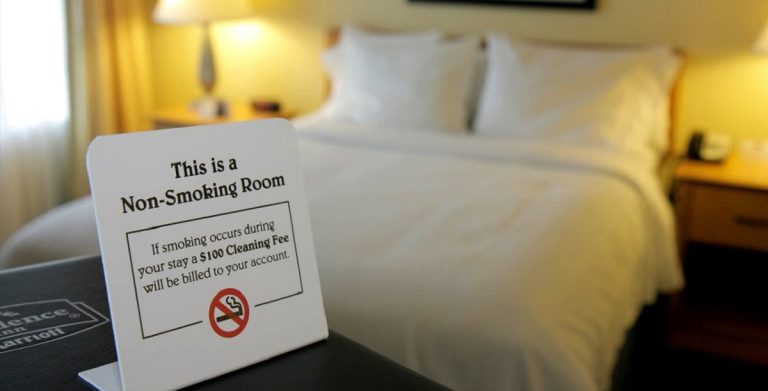When Does A Hotel Guest Become A Tenant In Florida?
In Florida, a state where tourism drives much of the economy, the line between a hotel guest and a tenant can sometimes get blurry.
This creates legal complexities for both hotels and their guests. Florida law divides lodging into two categories: transient and non-transient.
Understanding this distinction is key, as it affects the rights and responsibilities of both guests and hotel operators.
The major difference between a transient guest and a tenant often comes down to the intended duration of stay and whether the hotel serves as the guest’s primary residence.
Defining Transient vs. Non-transient Occupancy

When it comes to lodging in Florida, not all stays are created equal. The state recognizes two main types of occupancy: transient and non-transient.
Understanding these distinctions is crucial for both hotel operators and guests, as they determine the legal rights and obligations of each party.
Transient Public Lodging Establishments
Picture your typical vacation hotel or motel. These fall under the category of transient public lodging establishments.
According to Florida law, these are places that are rented to guests more than three times a year for periods shorter than 30 days or one calendar month, whichever is less.
If you’ve ever booked a room for a week-long beach getaway or a quick business trip, you’ve likely stayed in a transient lodging establishment.
Non-transient Public Lodging Establishments
On the flip side, we have non-transient public lodging establishments. These are places where guests typically stay for longer periods – at least 30 days or one calendar month.
Think extended stay hotels or apartment-style accommodations that cater to people needing a more permanent solution.
If you’ve ever relocated for work and stayed in a hotel-like setting for a month or more, you might have experienced non-transient lodging.
Legal Framework
Now that we’ve got the basics down, let’s dive into the legal nitty-gritty. In Florida, two main chapters of the state statutes come into play when discussing lodging and tenant rights.
Chapter 509 of Florida Statutes (Lodging)
This chapter is all about lodging establishments. It covers everything from licensing requirements to guest removal procedures. Importantly, it defines the rights of transient guests and the obligations of lodging operators.
If you’re running a hotel or planning a short stay in Florida, this is the law that primarily governs your situation.
Chapter 83, Part II of Florida Statutes (Residential Landlord-Tenant Relationships)
Here’s where things get interesting. While Chapter 509 deals with typical hotel stays, Chapter 83, Part II kicks in when the relationship between the lodging provider and the occupant starts to look more like a landlord-tenant situation.
This chapter provides more extensive protections for occupants, similar to those enjoyed by apartment renters.
When a Hotel Guest Becomes a Tenant

So, when does the switch flip? When does a hotel guest cross the line into tenant territory? It’s not always crystal clear, but there are several factors to consider.
A hotel guest may legally shift to tenant status if the stay becomes long-term, especially if the guest begins using the hotel as their primary residence.
The tipping point isn’t just about how long they’ve stayed—it also involves how they are using the property.
If a guest starts receiving mail, lists the hotel as their home address, or shows other signs of permanence, they may be considered a tenant under Florida law.
Once this happens, it can be more difficult for a hotel to evict them, as the process becomes more like a traditional eviction involving court procedures.
Factors Determining Non-transient Occupancy
While not the only factor, the duration of occupancy plays a significant role. Stays extending beyond 30 days often lean towards non-transient status.
What was the original agreement between the hotel and the guest? If both parties intended a long-term arrangement from the start, this could indicate a non-transient occupancy.
How is the occupant paying? Regular monthly payments, similar to rent, could suggest a tenancy rather than a typical hotel stay.
Is the occupant using the room as their primary residence? Have they set up utilities in their name or received mail at the hotel address?
Rebuttable Presumptions
Florida law provides some guidance in the form of rebuttable presumptions. If the hotel room is not the sole residence of the guest, there’s a presumption that the occupancy is transient.
Conversely, if the room is the occupant’s only residence, the law presumes the occupancy is non-transient. However, these presumptions can be challenged with evidence to the contrary.
For instance, a long-term guest might still be considered transient if they maintain a permanent residence elsewhere and are staying at the hotel for a specific, temporary purpose.
Rights and Protections
The classification of an occupant as either a transient guest or a non-transient tenant has significant implications for their rights and the hotel’s obligations.
Transient Guests
Transient guests, your typical vacationers or business travelers, have fewer protections under Florida law.
Hotels can ask these guests to leave with relatively short notice and can even request law enforcement assistance to remove them if necessary. However, hotels must reimburse guests for any unused portion of prepaid accommodations.
Non-transient Occupants (Tenants)
Once an occupant is considered a tenant, they gain many of the same protections as apartment renters. This includes the right to proper eviction procedures, which can be time-consuming and costly for the hotel.
Hotels can’t simply lock out these occupants or cut off utilities to force them to leave – doing so could result in legal consequences for the hotel.
Challenges for Hotels
The blurry line between guest and tenant status can create significant headaches for hotel operators in Florida.
Difficulty in Enforcing Guest Ejection
When a hotel wants a problematic guest to leave, the process should be straightforward under normal circumstances.
However, if the guest claims to be a tenant, the situation becomes much more complex. Hotels may find themselves unable to remove the occupant without going through formal eviction procedures.
Dealing with Law Enforcement
Even when hotels believe they have the right to remove a guest, law enforcement may be hesitant to get involved. Police officers need to establish probable cause that the occupant is indeed a transient guest before assisting with removal.
If there’s any doubt, they may err on the side of caution and treat the situation as a civil matter, leaving the hotel to pursue legal eviction.
Best Practices for Hotels
To navigate these tricky waters, hotels in Florida should consider implementing some protective measures.
Establishing House Rules
Clear policies can go a long way in preventing guest-tenant confusion. Hotels should establish and prominently display rules about maximum length of stay, check-out procedures, and the transient nature of their accommodations.
Registration Procedures
Smart registration practices can help hotels maintain their status as transient lodging establishments. Consider these steps:
- Require guests to provide a permanent address separate from the hotel.
- Set specific check-out dates for all stays, even if extensions are allowed.
- Include language in registration forms acknowledging the transient nature of the stay.
- Post signs clearly stating that the establishment is for transient occupancy only.
Legal Recourse for Hotels
When prevention fails and a hotel finds itself dealing with a guest who claims tenant status, the path forward usually involves formal eviction proceedings.
Eviction Process for Non-transient Occupants
If a hotel determines that an occupant has indeed become a tenant, they’ll need to follow the eviction procedures outlined in Florida’s landlord-tenant law. This typically involves:
- Serving proper notice (the length depends on the reason for eviction)
- Filing an eviction lawsuit if the occupant doesn’t leave
- Obtaining a judgment from the court
- Having law enforcement remove the occupant if they still refuse to leave
While this process can be time-consuming and costly, it’s crucial for hotels to follow it correctly to avoid potential legal repercussions.
Final Words
The line between hotel guest and tenant in Florida isn’t always clear-cut, but understanding the distinctions is crucial for both lodging operators and occupants.
By familiarizing yourself with the relevant laws and implementing best practices, you can navigate these complex situations more effectively.
Whether you’re running a hotel or planning an extended stay in the Sunshine State, being informed about your rights and obligations can help ensure a smoother experience for all involved.
Remember, when in doubt, it’s always best to consult with a legal professional who specializes in Florida’s hospitality and tenancy laws.





